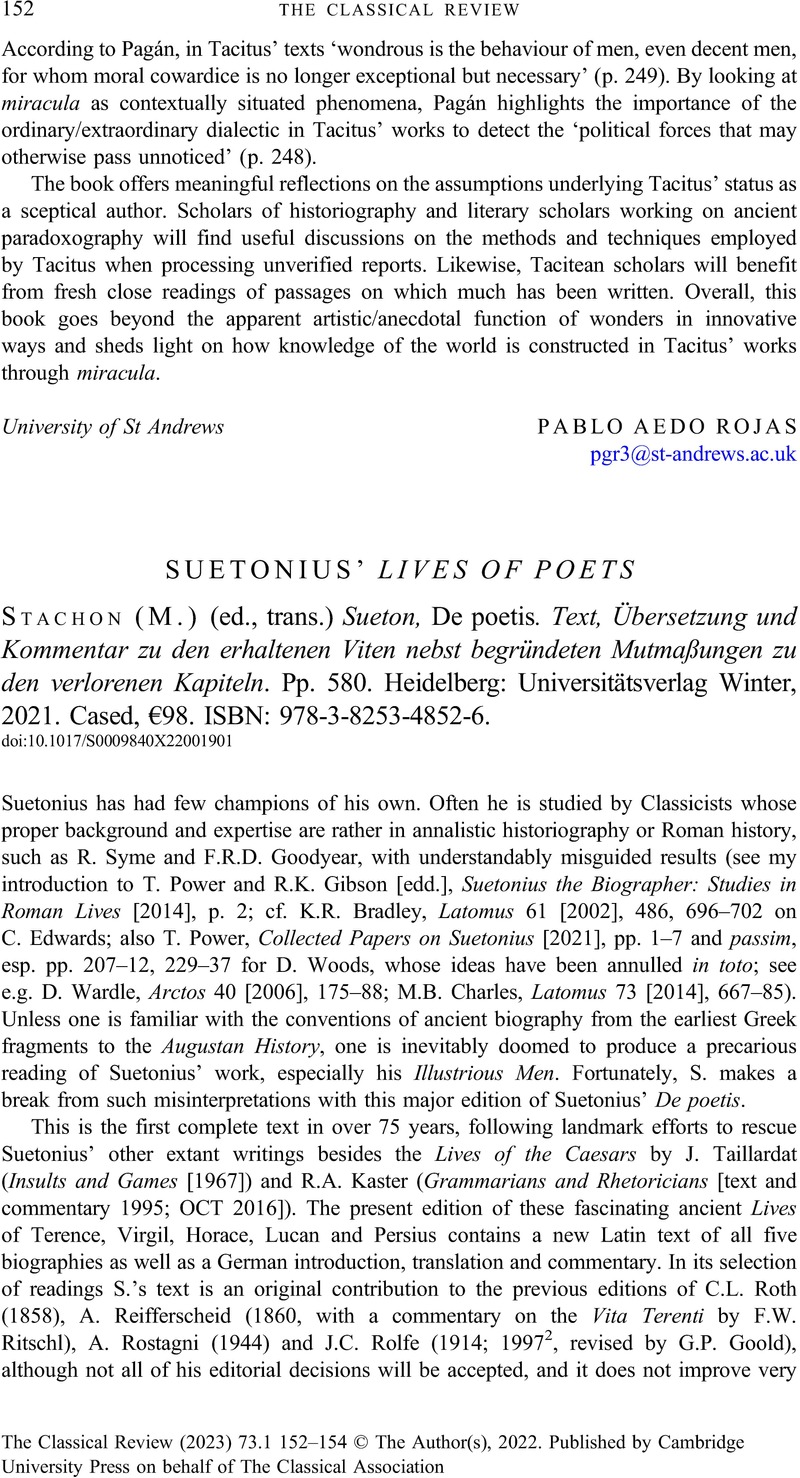No CrossRef data available.
Article contents
SUETONIUS’ LIVES OF POETS - (M.) Stachon (ed., trans.) Sueton, De poetis. Text, Übersetzung und Kommentar zu den erhaltenen Viten nebst begründeten Mutmaßungen zu den verlorenen Kapiteln. Pp. 580. Heidelberg: Universitätsverlag Winter, 2021. Cased, €98. ISBN: 978-3-8253-4852-6.
Review products
(M.) Stachon (ed., trans.) Sueton, De poetis. Text, Übersetzung und Kommentar zu den erhaltenen Viten nebst begründeten Mutmaßungen zu den verlorenen Kapiteln. Pp. 580. Heidelberg: Universitätsverlag Winter, 2021. Cased, €98. ISBN: 978-3-8253-4852-6.
Published online by Cambridge University Press: 09 September 2022
Abstract
An abstract is not available for this content so a preview has been provided. Please use the Get access link above for information on how to access this content.

- Type
- Reviews
- Information
- Copyright
- Copyright © The Author(s), 2022. Published by Cambridge University Press on behalf of The Classical Association



